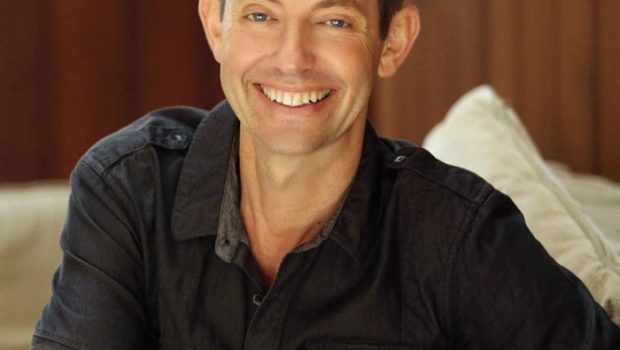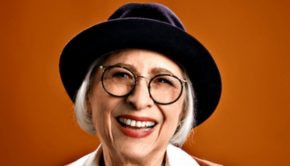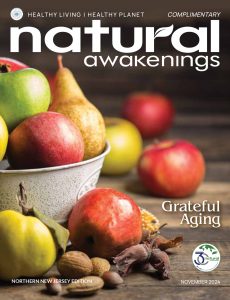Ocean Robbins on Personal and Planetary Health
by April Thompson
Food revolutionary Ocean Robbins has dedicated his life to inspiring others to rethink their food choices to transform both personal and planetary health. It’s a path forged in part by his father, John Robbins, who walked away from the family ice cream company, Baskin-Robbins, to become an acclaimed health advocate and author.
Together, father and son founded the 500,000-plus-member Food Revolution Network, an online education and advocacy platform that works for healthy, sustainable, humane and delicious food for all. Ocean launched Youth for Environmental Sanity (YES!) at age 16, and directed the organization for 20 years.
Ocean’s new book, 31-Day Food Revolution: Heal Your Body, Feel Great, and Transform Your World, aims to help individuals revamp their diets, and in turn, themselves and their communities. It distills his lifetime of knowledge and wisdom on food, health and activism into an accessible how-to guide. Learn more at 31DayFoodRevolution.com.
What connections do you see between personal and planetary health?
In many situations in life, we have to compromise—but when it comes to food, the choices that are best for us personally also happen to be best for the planet. Eating a plant-based diet, organically grown when possible, is not only linked to the best statistical outcomes for long-term health and well-being, it also helps ensure healthy topsoil, water and a stable climate for future generations.
In what ways have you seen members of the Food Revolution Network transform their communities?
We hear incredible stories from members all over the world who are seeing radical changes in their health—reversing heart disease, losing weight, gaining energy and mental clarity. And we also hear inspiring stories of people turning food deserts into wonderful oases of healthy living; for example, Ron Finley, in South Central Los Angeles, who is known for saying that drive-throughs kill more people than drive-by shootings in his neighborhood.
He planted vegetables for the community in the curbside dirt strip in front of his home—and got cited by the city for it. He ended up getting the laws changed, and has since started The Ron Finley Project to create an urban community food hub where the community can come together to plant, learn and nourish themselves.
What are some ways busy people can connect with like-minded individuals to support healthy lifestyle and diet changes?
Start by finding out if you have loved ones who do share your food values, and nurture those relationships. Lean into those healthy relationships; you might be surprised how many people around you are also quietly trying to achieve similar goals.
You can also ask friends and family to be a food ally; even if they are not a full participant in your health regimen, they might be a fan or friend. That can mean preparing particular foods if you come for dinner or simply checking in on how you are doing with your goals and commitments. You can widen your circle of healthy eating through meal swaps or other shared meal programs. It’s always easier to cook in larger quantities, and there is the added benefit of greater social connection with shared meals.
If you are looking for new friends and allies, it helps to connect to organizations that are already promoting healthy food hubs. There are many listed in the back of 31-Day Food Revolution.
So many people struggle with loneliness, and some are afraid they will feel even more isolated if they step out into a healthy eating regimen. On the contrary, you can become a magnet for people who care about their world and aren’t content with the status quo. These friendships can often become deeper and more valued than ever.
What has been one of the biggest challenges you’ve faced in living a lifestyle against the societal grain, and how have you overcome it?
Impatience. I grew up eating all-natural food; my parents
almost named me Kale, and I ate a lot of it growing up. At a certain point, I saw that I had become judgmental and dogmatic when encountering people whose choices did not align with my own, though as Martin Luther King Jr. said, we have no moral authority with those who can feel our underlying contempt. I have since developed a profound respect for each individual’s unique values, needs, experiences and priorities. I advocate for people’s right to make their own choices about what they need. My goal is to help facilitate people’s choices, and to do so with compassion.
Connect with freelance writer April Thompson, of Washington, D.C., at AprilWrites.com.




























